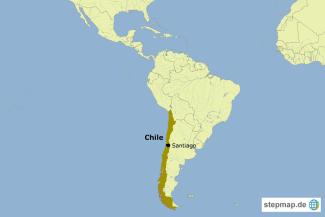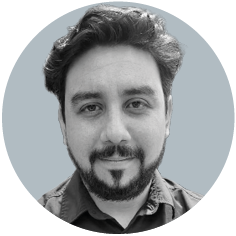Foreign doctors
Looking for a job

Of the current influx of foreign doctors, the vast majority are from Venezuela, which is gripped by a severe political and economic crisis. Most of the others come from Ecuador, Colombia, Cuba and other Latin American countries.
They come for a variety of reasons: to escape crises in their home countries, to build a better life for their families, or to earn higher incomes than they can at home. In some cases they fill jobs in remote parts of the country that have trouble attracting Chilean doctors.
Yet many foreign doctors complain of a difficult path to establishing themselves in Chile. They are particularly unhappy about a requirement to pass a certain national test before they can practice – even though many Latin American countries have agreements with Chile for mutual recognition of professional qualifications.
The test they must pass, called Eunacom (Examen Único Nacional de Conocimientos de Medicina), is a theoretical and practical exam in general medicine given to recent graduates of Chilean medical schools and to incoming foreign doctors. The aim is to ensure that those authorised to practice in Chile’s public health system meet the government’s high standards of competence. Long-practicing Chilean doctors who have passed the test once do not need to take it again.
The test is given twice a year, in July and December, and the results have shown consistent differences between Chilean recent graduates and foreign doctors. Of the 2,393 candidates who took the test in December 2020, for example, 2,129 were foreigners and 264 were Chileans. The results were startling: 96 % of Chileans passed, compared to only 64 % of foreign candidates.
The Chilean Association of Foreign Doctors says the fault lies with the test itself, not with the doctors. Eunacom is a general exam, appropriate for testing new graduates about a wide range of medical topics, but not appropriate for those who graduated years ago, says executive director Manuel Araneda. "Experienced doctors who come to Chile have since specialised," he says.
Moreover, foreign doctors complain about additional tests administered by specialised medical societies to applicants from abroad. They claim a lack of transparency and conflict of interest, saying in effect that Chilean medical specialists are trying to bar foreign competitors.
The Eunacom and specialised tests pose such hurdles that many foreign doctors spend years working in informal jobs while looking for a foothold in their fields.
One example is Mijail Solomonoff, a Venezuelan orthopaedic specialist and a member of the Andrés Bello Association of Venezuelan Doctors, a group that supports foreign doctors in Chile. He spent his first year in Chile navigating various barriers while working as a home-care provider. His current job is in a private clinic. Chile’s private-sector clinics supplement the care available under the country’s universal public health-care system.
Solomonoff believes foreign doctors deserve a warmer welcome in Chile. "We are professionals whose training cost the state nothing,” he says. “Chile should take advantage of our services. If it does not do so, many of us will go elsewhere or will look for jobs outside the public-sector system."
Javier A. Cisterna Figueroa is a Chilean journalist based in Concepción.
cisternafigueroa@gmail.com
Normal 0 21 false false false ES-CL X-NONE X-NONE /* Style Definitions */ table.MsoNormalTable {mso-style-name:"Normale Tabelle"; mso-tstyle-rowband-size:0; mso-tstyle-colband-size:0; mso-style-noshow:yes; mso-style-priority:99; mso-style-parent:""; mso-padding-alt:0cm 5.4pt 0cm 5.4pt; mso-para-margin:0cm; mso-pagination:widow-orphan; font-size:12.0pt; font-family:"Calibri",sans-serif; mso-ascii-font-family:Calibri; mso-ascii-theme-font:minor-latin; mso-hansi-font-family:Calibri; mso-hansi-theme-font:minor-latin; mso-bidi-font-family:"Times New Roman"; mso-bidi-theme-font:minor-bidi; mso-ansi-language:ES-CL; mso-fareast-language:EN-US;}








